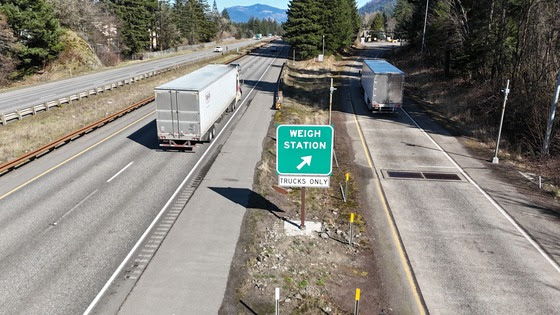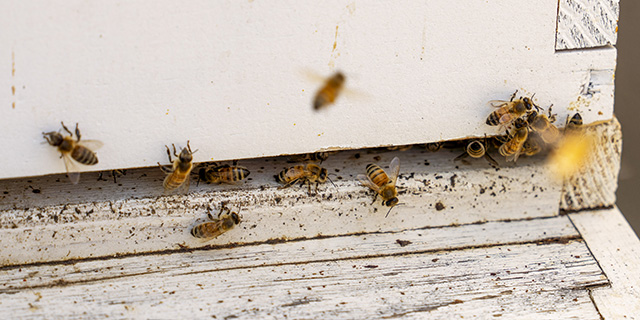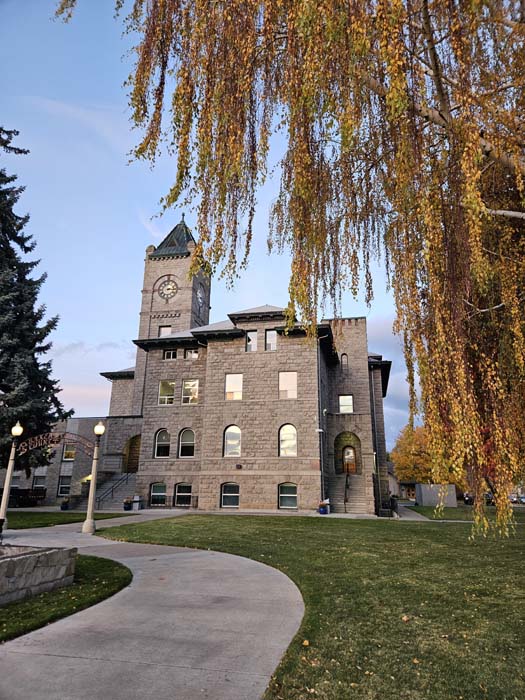Pearl Harbor brings back childhood memories of summers with Keiko
Published 2:48 am Wednesday, December 7, 2011
Hues of blue, yellow and purple enhanced the meadows along the Grande Ronde River during the summer months when I played with my friend, Keiko.
Keiko and I first met at age four. I didnt know she was Japanese and she didnt know I was Portuguese and our fathers didnt think it was important. We were just two little girls playing on the railroad tracks rough creosote ties and running through the wildflowers and skunk cabbage in the meadow.
The Mt. Emily Lumber Company built the railroad over the old Indian trails to transport logs from the virgin mountains; miles of track that branched up each draw to collect the colossal pine and tamarack that were cross cut and chained to the rail cars. The cars swayed and the rails flexed, when the train pulled along the river and through the meadow past a simple mountain cabin where Keiko and her family lived, the place everyone called Jap Camp.
Keikos father worked for the lumber company. He maintained the companys rails and rail cars and oversaw the transportation of logs. My father took time from his law practice in Pendleton, and his sessions in the Oregon State Legislature, to oversee the summer grazing of my grandfathers many bands of sheep in the Blue Mountains of Eastern Oregon.
One quiet Sunday, Keikos father invited me and my father to join him and Keiko for a ride on a hand car. My father and I manned the handle on one side, Keiko and her father handled the other. The rhythm of the sea-saw was slow and constant like ocean tides. We faced each other, fathers and daughters bonded in joy.
We felt the Sunday rhythms of the sea-saw for several summers. We forgot the years rigid school schedules. We were free in the Blue Mountains to pick wild flowers and to play.
When I wasnt in the meadow with Keiko, I rode my horse, Rex, from our mountain cabin with my mother and our camp-tender, Lee Correa, who led a pack-string of mules. Lee packed saddle bags with dried beans, potatoes, bacon, kerosene for lamps and Blue Vitriol to medicate sheep infested with maggots.
I so cherished these trips into the wilderness of rocky switchback trails with fleeing deer and elk. We stopped by streams where we watched spawning salmon. Irish and Basque shepherds delighted me with walking staffs with tops whittled into wolf, bear and bird heads. Still, my favorite moments in the mountains were spent with Keiko and our fathers.
On occasion, my father, mother and I were invited to the familys cabin for dinner. Keiko and I played outdoors while our parents laughed and cooked. I had never smelled such a strange kitchen aroma: musty earthy odors of unusual cabbages and mushrooms. Trout and salmon from the river were barely cooked, and crawdads appeared to look at me from the platter. I felt small and shy when I saw the food, and the low table with handle-less cups and bamboo handled teapots. I was accustomed to sourdough pancakes, linguica with potatoes and anise and lamb stew my mother prepared for us in our cabin.
How unusual. How pleasant. How lovely the evening. We shared these dinners each summer until my father and I traveled to Portland in December when I was nine years old.
He was home from The Legislature in Salem. He had made a special trip so he could drive me to Portland for a medical exam. There had been frequent such trips there the last five years.
On Saturday, he took me to watch boxing somewhere near the Multnomah Hotel. He loved boxing and had boxed in college at the University of California, Berkley. Although I hated the blood and sweat, I loved being with my father. He shared his favorite story. He had competed in boxing as a freshman and sophomore but had withdrawn to pursue his rigid study schedule. Later, when he was in law school, he had returned to the indoor sport facility and challenged a freshman to box. The last he remembered, he had received a quick right-to-the-jaw knock out. He had subsequently discontinued boxing.
Sunday afternoon, we were to go to the Virginia Cafe for mincemeat pie, our favorite stop, not too far from the Imperial Hotel. Newsboys were pacing up and down the streets yelling, Extra, Extra, read all about it, Japs Bomb Pearl Harbor. Except for the melee of paper boys … people froze. There was a deafening still. Men and women, young and old, appeared stunned.
My father summoned a young newspaper boy; he purchased the Oregon Statesman, which was published by Governor Sprague. The governor was one of the first to know of the attack and ordered his staff to work en force to hit the streets with a second Sunday edition; the first edition had been circulated before the mornings attack was known. My father explained to me how people were going to hate the Japanese. Dont worry, he said to me, Governor Sprague promises to protect all American-Japanese.
That Monday, President Roosevelt announced to a grand radio audience the United States was suddenly attacked by the naval and air forces of the Japanese Empire. He finished his speech by asking Congress to declare war on Japan. The Congress cheered.
We listened lo the radio address in our hotel room, and my father read Mondays newspapers. The Oregonian issued details of how lo prepare against an invasion. Soldiers were to guard the docks in the St. Johns area. The Columbia River Basin was considered a likely target for a Japanese attack. Still, there was no hysteria. I was frightened by the eerie composure and disbelief.
The following morning we learned Morrison St. Bridge was guarded by soldiers and those crossing were to be stopped and questioned.
While eating our breakfast, we overheard the man seated next to us. He told us many lives had been lost. He said five large aircraft carriers had been bombed in Pearl Harbor. I remember our waiter telling us about the football team from Oregon that was unable to leave the island. I have since learned it was the Willamette University team. They were in Hawaii for the Shrine Bowl to play the University of Hawaii.
We slowly crossed the bridge in our old Ford sedan. My father showed his Oregon Legislature identification card and we were waved past the uniformed guards. They are not looking for people like us, anyway, my father said to me. We drove the curvy highway through the Columbia River Gorge to our home in Pendleton, Oregon.
When I returned to school, children acted mean. They wanted all Japanese lo die. They cracked Jap jokes and mimicked the language.
I thought, what has happened to Keiko?
Our teacher told us President Roosevelt had asked Washington to send Japanese families in America to camps.
Once again I thought, what has happened to Keiko?
Soon it was summer and we climbed into the old Model T and rode up Cabbage Hill. We returned to the Grande Ronde River meadow. Keikos cabin stood abandoned … stark. Nothing remained. The garden was now reduced to dirt and dried leaves.
The family was gone.
*
Carla Cunha, 80, is a 40-year resident of Walla Walla, but she was born in Pendleton and lived for six years in Echo. Her father was Pendleton attorney and rancher Alfred Cunha. He also served in the Oregon Legislature. Carla Cunha, who rode horses until two years ago, said writing has been a passion and a hobby for many years. She still takes classes at Walla Walla Community College and has traveled extensively.





